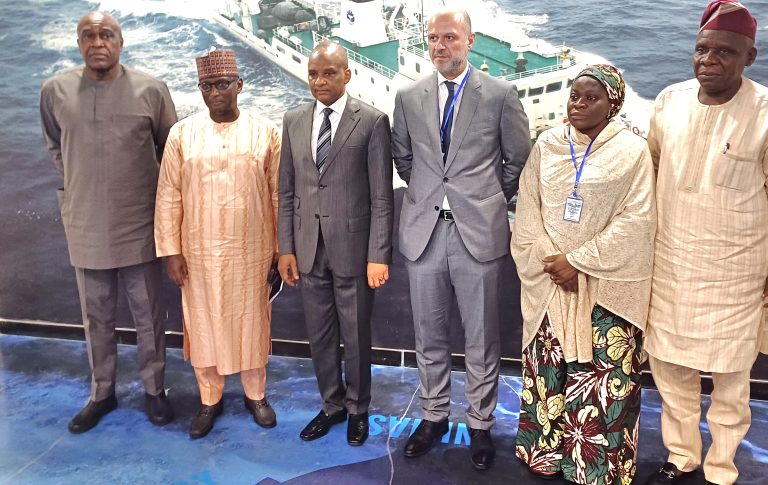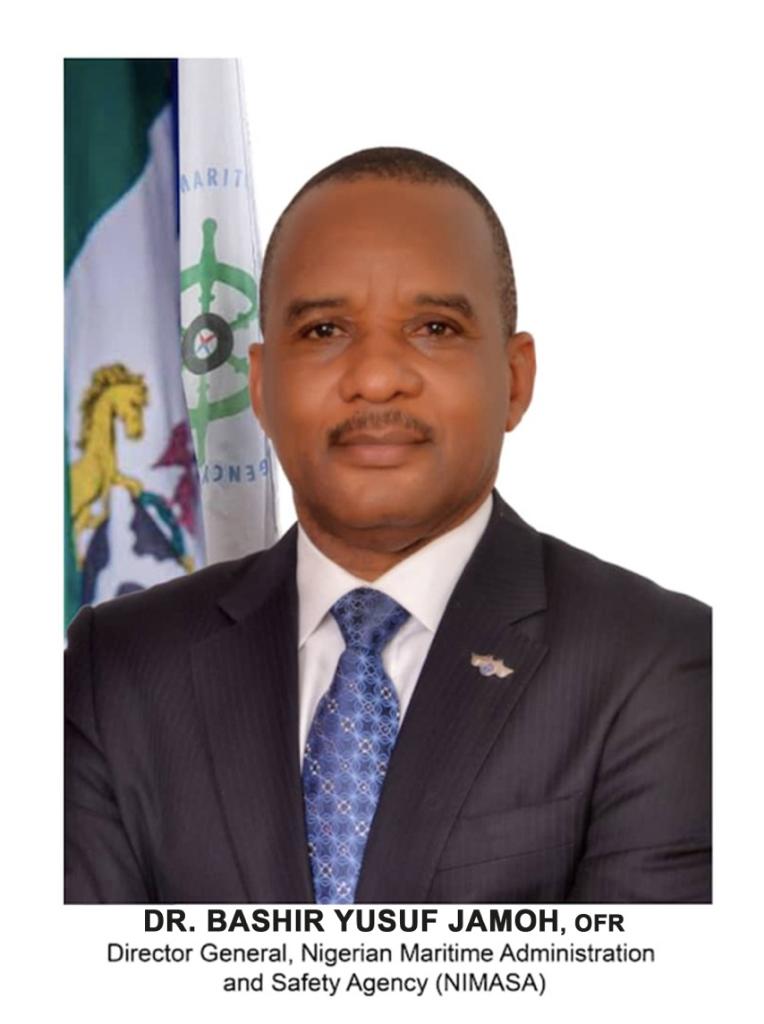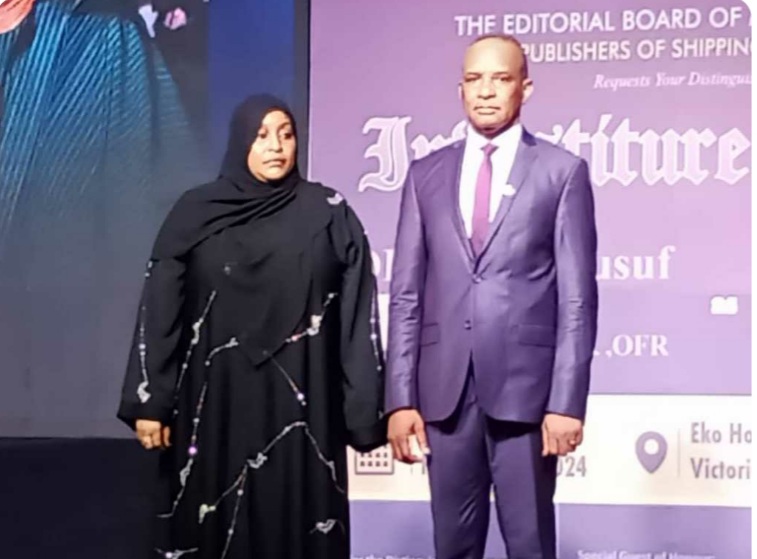Business Maritime
Foreign Financiers Set To Bail Out Troubled CVFF

As NIMASA Rejects Nigerian MDBs Prohibitive Interest Rate
BY EGUONO ODJEGBA
There are indications that the troubled disbursement of the Cabotage Vessel Finance Fund (CVFF) under the purview of the Nigerian Maritime Administration and Safety Agency (NIMASA) is already attracting the attention of foreign financial institutions, who are believed to have made commitments to bail it out of its seeming financial predicament.
Established in 2006, the CVFF has suffered unquestionable liquidity question and over ten years’ disbursement inertia and rigmarole, perfected through official twists and turns bothering on misapplication, mismanagement and incompetence. Financial and industry analysts say the challenges remains a leading example of our greed and unserious attitude towards project financing and capacity building; as much indeed, a sad example of our public financial administration.
The Director General of NIMASA, Dr. Bashir Jamoh OFR who disclosed the intentions of the foreign financials to step in the gap during an engagement with the Managing Director of Nigerian National Petroleum Company (NNPC) Shipping Limited, Mr. Ponas Gliatis and indigenous ship owners under the auspices of Nigerian Chamber of Shipping (NCS), also announced a fresh six months time frame for the conclusion of discussions appertaining to the sponsorship of the CVFF and the otherwise protracted and its tortuous disbursement.
Jamoh also gave indication that the registered Primary Lending Institutions (PLIs) earlier slated to partake and manage the CVFF have been excused, given the update on alternative, following the PLIs demand for 7.5percent interest rate; which he said has been rejected in lieu of a more friendly interest rate offer by the international financial sponsors.
The DG NIMASA lamented that the CVFF disbursement has been stalled by the one percent difference in the interest rates as the approved banks, which comprise of Zenith Bank, Jaiz Bank, United Bank of Africa, Union Bank and Polaris Bank, have reportedly, insisted on 7.5 percent as against the NIMASA and nnpc Shipping proposed 6.5percent.
Speaking when he received the new NNPC Shipping boss, Mr. Ponas Gliatis and NSC President, Mr. Aminu Umar in his office, Jamoh explained that the NNPC Shipping had reached an off-taker agreement to provide 9percent of the 15 percent reserved for ship owners for the needed vessels.
While appealing to Gliatis to respect the agreement reached with his predecessor, Jamoh also hinted that all issues relating to the disbursement of the CVFF would be addressed within the next six months, even as he listed the international financing institutions to include African Export Import Bank (Afrexim Bank), African Development Bank and American Express Bank; amongst other prospective sponsors still in the waiting.
His words, “NIMASA and NNPC Shipping has made tremendous progress with regards to CVFF disbursement but there was a disagreement when the Primary Lending Institutions (PLIs) insisted on collecting 7.5 percent interest but NIMASA and NNPC said we can only do 6.5 percent.
“I believe that with the arrival of a new NNPC MD, we can take up these discussions for speedy conclusion. It is also gratifying to have NNPC Shipping develop interest as off takers for CVFF.”

With a passion for achieving all the deliverables possible with growth surveys, policies and implementation, Jamoh is upbeat that it is about time our shipping industry contributes significantly to the nation’s GDP.
“It is sad that shipping contributes less than one percent to the Gross Domestic Product (GDP) of Nigeria. Shipping contributes to over 7percent to Singapore’s GDP and Nigeria is targeting to surpass that 7 percent. With the vast experience of the new MD of NNPC Shipping, Mr. Ponas Gliatis, I believe that we can surpass 7percent GDP contribution,” he said.
On his part, the NNPC Shipping boss assured NIMASA and the maritime community that his organization is committed to continuous robust stakeholders’ collaboration towards addressing the prevailing challenges in the nation’s shipping sub sector.
Under the guidelines for the CVFF disbursement, while NIMASA is expected to provide 50percent of the cost of the vessels, the PLIs are expected to provide 35percent, while the beneficiaries, who are the ship owners, are expected to provide 15percent.
Recall that in January 2023, NIMASA at a meeting with the appointed PLIs told the CEOs of the money deposit banks (MDB), the need to remain on the same page and to offer reasonable interest rate; and to ensure that all loan and risk instruments are firmly in place and professionally adhered to and managed.
He said, “We are engaging the banks on the management and disbursement of the CVFF because they are the ones who have the professional know-how in fund management and this would help us in the reduction of risk in order to avoid the same mistakes of the Ship Acquisition and Ship Building Fund.
“The banks are expected to come up with issues such as the interest rate, tenor, collateral, and other requirements needed to access the fund. NIMASA is of the position that the interest rate should be of international best practices because the fund being disbursed is Dollar denominated.”
Speaking on behalf of the others, Managing Director of Jaiz bank, Dr. Sirajo Salisu assured that disbursement will be carried out in line with the provisions of the Cabotage Act; with a further promise to provide a friendly interest rate.
“We will try our best to partner with the beneficiaries or the proposed beneficiaries of these funds and I believe they are much aware that this is not a grant, this is money that is meant for a purpose and we will ensure that that purpose is achieved to the benefits of the country.”
With over five failed disbursement plans in the past ten years, industry observers say the CVFF has remained the perfect game of exploitation for some politicians and bankers, spanning the administration of President Jonathan Goodluck through that of President Muhammadu Buhari.
This is despite that the capacity gap the CVFF was conceived to address has remained stillborn and unattended, and believed to have grown worse as the remedial instrument gets misdiagnosed and misadvised by incompetent and insincere administrations and their equally misguided managers.
Whereas Jamoh is said to have considerably altered the seeming lack of seriousness and required focus for achieving the objectives of the Cabotage Trade, stakeholders are upbeat that all things being equal, the latest new six months’ time frame the DG NIMASA has announced, may become the silver lining.




























